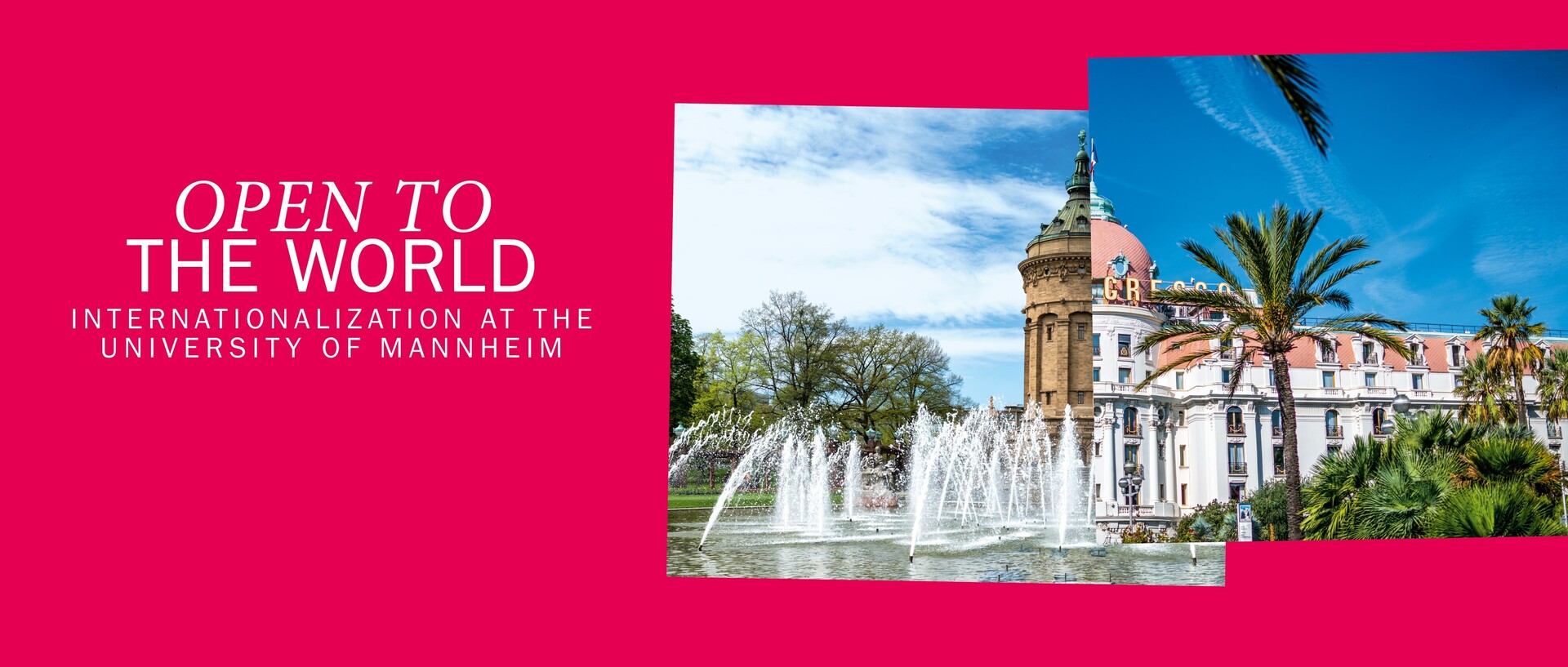Challenges and Crises
Pandemic, Brexit, war in Ukraine. Within a few years, several international crises required universities in Germany to act fast and take a clear stance. The University of Mannheim’s staff members demonstrated courage, an open mindset and enormous flexibility – and proved that, together, they can effectively tackle such crises.

March 2020. The spring semester was in full swing, all on-campus classes had already started a couple of weeks ago. And all of a sudden, a new, fast-spreading virus was discovered. The federal state of Baden-Württemberg ordered a lockdown, and everything was shut down over night, including schools and universities. When Melanie Klinger, head of the Teaching and Learning Center (ZLL) of the University of Mannheim, talks about the outbreak of the Covid-19 pandemic, it all seems like a long gone past. Back then, the more than 1,600 university staff members were not communicating via the MS Teams video conference system, but rather making phone calls or knocking on their colleagues’ doors to have a chat. “To be honest, we weren’t prepared for a lockdown, we didn’t even have a video conference system. In fact, MS Teams was in a piloting phase but it had not been rolled out,” says Klinger. The priority then was to keep teaching operations running so that students were able to continue their studies. That is why the teaching task force was established. At the heights of the pandemic, a trio of University IT (UNIT), Division II (Student Affairs), and ZLL met on a daily basis. Within days, the task force created a digital infrastructure that is still being used by thousands today. “We purchased Zoom licenses, which enabled us to hold large online lectures for up to 1,000 participants. In addition, we connected Portal², the online course catalog, to Zoom. From the portal, students were able to easily access the Zoom links to their seminars,” explains Klinger. According to Klinger, it was during the crisis that the departments closed ranks, generated synergies, and sped up their work. Looking back, the teaching task force can proudly say that they accomplished their goal: despite being in lockdown during the spring semester 2020, every student was able to attend every class and sit every examination they needed to complete their degree. Even the international programs were continued: thanks to the newly established digital infrastructure, international students had the chance to pursue their semester abroad at the University of Mannheim from home.
The month of March 2020 held plenty of additional organizational work, also for Kathrin Blitzke and her team at the International Office who take care of the students abroad. At that time, the semester had already begun in most countries. Hundreds of Mannheim students were spread all across the globe when the Federal Foreign Office started to bring the first students back to Germany. Countless e-mails reached the Study Abroad team, who answered every single one of them. “We take our duty of care very seriously. So we sent out a questionnaire to the students in order to get an overview of the situation and provide support as quickly as possible,” recounts Blitzke. At the same time, the International Office received the first queries from those students who had applied to go abroad in the fall semester – some 850 after all. They were all wondering the same thing: will I be able to leave Germany in the summer? Or: I no longer want to go to China or Italy; can I change my destination? “We decided before long to offer students to delay their semester abroad, which generated an incredible amount of work because we had to coordinate everything and we also wanted to cater for the students’ needs,” Blitzke says. During this time, the team was in emergency mode and handled twice as much work as usual, but they managed to stick together.
The big questions about semesters abroad that arose with the Covid-19 pandemic have long been answered – but some students remain in limbo, at least with respect to one country: the United Kingdom. In June 2016, the UK voted to leave the European Union. At first, the only consequence for Blitzke’s team was an increased number of students in need of advice – luckily, it turned out that the Erasmus program budget for financial support would remain accessible. That is also due to the pandemic, as Blitzke explains: “The UK may have left the Erasmus program, but since quite a few students rejected their placement abroad during the pandemic, there are some means left which we can spend by 31 May 2023.” Currently, Mannheim Erasmus students still set out to England, Scotland, Wales, and Northern Ireland. To date, the UK has often been the most popular destination. The number of students going there had been increasing steadily and leveled off at a high amount of as much as 120 persons. This number has now shrunk to 83. “For a long time, we couldn’t tell whether we would still be able to finance the academic year 2022/
Realizing dreams, creating opportunities. In times of war in the heart of Europe, Sabrina Scherbarth, managing director of the University of Mannheim Foundation, is well aware of her responsibility and also thankful for the possibility of swift action that her work allows for. She vividly remembers the Friday when Professor Fetzer called her and proposed the idea of establishing an emergency fund for researchers affected by the war in Ukraine. After 5 working days, 600 letters, and 200 e-mails, the idea had turned into a fund. “We want to support early-stage researches from Ukraine and Russia who had to flee their country and are in danger, so they can continue their academic work at the University of Mannheim,” explains Scherbarth. Two scholarship holders already benefit from the funding. One of them is Alina from Tschernihiw in the north of Ukraine. After having spent many days in a basement to seek shelter, she fled with her five-year-old daughter to friends in Germany. Alina holds a doctorate in history and does research on legal structures in Ukraine during the Nazi occupation. She is now able to continue her academic work at the University of Mannheim’s Department of History. “What we’ve learned from the past few years is that, in times of crises, you need to act fast. We are glad that so many donors demonstrate solidarity with the war victims and that we can offer them help quickly,” says Sabrina Scherbarth.
Text: Jule Leger / October 2022
